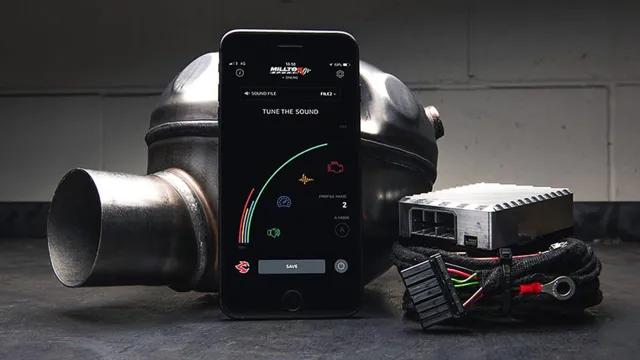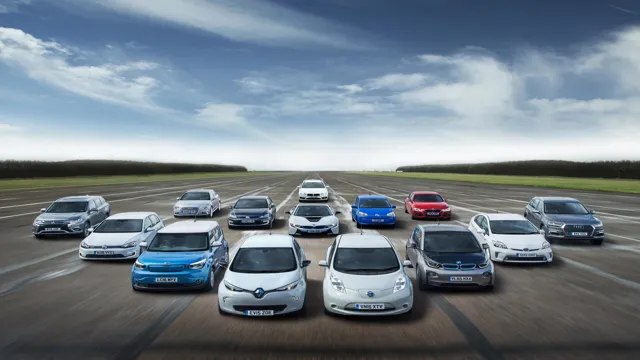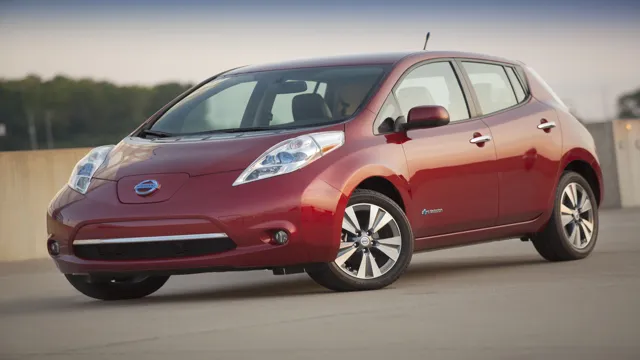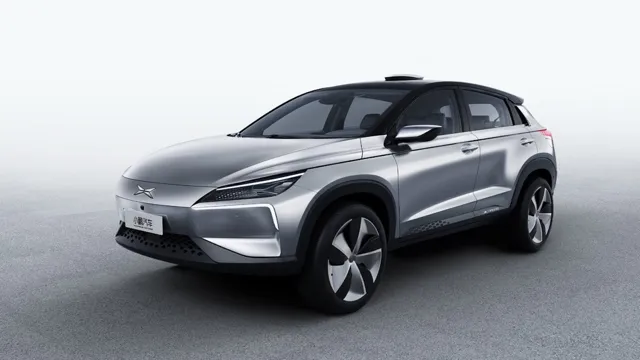Unveiling the Truth: Busting the Myths and Exposing Fake News About Electric Cars
Electric cars have become a hot topic of discussion nowadays. With more and more car manufacturers shifting their focus towards electric cars, there is a growing curiosity among people about these vehicles. However, with a plethora of myths and false information around electric cars, it can be challenging to separate fact from fiction.
In this blog, we will debunk some of the most common misconceptions related to electric cars and help you gain a clearer understanding of these vehicles. From addressing range anxiety to understanding the cost-effectiveness of these cars, we will explore all aspects of electric cars. Electric cars have come a long way since their inception, with advancements in technology and infrastructure supporting their growth.
Despite this, many people still have reservations about switching to electric cars. But with the benefits of electric cars outweighing their drawbacks, it’s important to separate fact from fiction and make an informed decision. So, whether you’re planning to buy an electric car or simply curious to learn more, this blog is for you.
Join us as we explore the world of electric cars and debunk some of the most common myths surrounding them.
Myth #1: Electric cars are less efficient than gas-powered cars
It’s time to bust one of the biggest fake news about electric cars – that they aren’t as efficient as their gas-powered counterparts. The truth is, electric cars are actually much more efficient than gas-powered cars. That’s because electric cars convert nearly all of their energy into driving power, whereas gas-powered cars lose a significant amount of energy in the form of heat and exhaust.
Additionally, electric cars can regenerate energy while braking, further increasing their efficiency. When it comes to charging electric cars, there are a variety of options available, from charging at home to using public charging stations. While it may take longer to charge an electric car than refill a gas tank, charging times are improving all the time, and many electric vehicles offer fast charging capabilities.
So don’t believe the myth – electric cars are a smart and efficient choice for environmentally-conscious drivers.
Data: Electric cars have a higher efficiency rate than gas-powered cars.
Despite popular belief, electric cars are actually more efficient than gas-powered cars. This is simply because electric cars use energy from their batteries to power their motors, whereas gas-powered ones rely on burning fossil fuels to produce energy. Studies have shown that electric cars have an efficiency rate of around 60%, whereas gas-powered cars only have an efficiency rate of around 25%.
This means that electric cars are able to convert a larger percentage of their stored energy into actual movement, leading to less wasted energy and lower fuel costs in the long run. While it’s true that electric cars require charging and may have limited range compared to traditional cars, this is quickly improving as battery technology advances. So, if you’re looking for a more environmentally-friendly and wallet-friendly option, an electric car may just be the way to go.
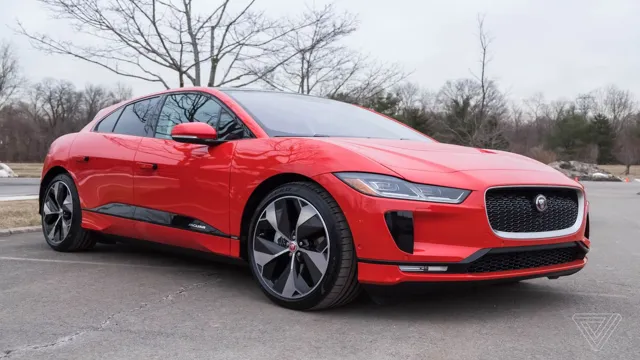
Example: Tesla Model S has a 89% energy efficiency while gas cars average around 25-30%.
Electric cars are often criticized for being less efficient than their gas guzzling counterparts, but this is simply not true. In fact, the opposite is true. Electric cars have much higher energy efficiency ratings than gas-powered cars.
For example, the Tesla Model S has an energy efficiency rating of 89 percent while gas cars average around 25-30 percent. This means that most of the energy stored in the battery of an electric car is converted into useful power to move the car, while much of the energy stored in gasoline is wasted as heat and other forms of energy. This high efficiency is due to the fact that electric motors are much more efficient at converting energy into motion than internal combustion engines.
So, if you want to save money on fuel costs and help reduce your carbon footprint, an electric car is definitely worth considering.
Myth #2: Electric cars are too expensive
Fake news about electric cars has propagated the myth that these vehicles are too expensive. This is a misconception as the cost of electric cars has decreased significantly over the years due to advances in technology and mass production. Additionally, the total cost of ownership for an electric car is often lower than that of a traditional gas-powered vehicle.
While the initial purchase price may be higher, electric cars require less maintenance and have lower operating costs. Furthermore, many governments offer tax credits and subsidies for purchasing electric cars, making them more affordable for consumers. Overall, the idea that electric cars are too expensive is simply fake news, and consumers should consider the total cost of ownership when making their decision.
Data: The cost of electric cars has decreased significantly in recent years.
It’s time to bust the myth that electric cars are too expensive. The cost of electric cars has decreased significantly in recent years, and they are becoming more affordable for everyone. With advances in technology, the price of batteries, which used to be a significant expense, has also come down.
In fact, the latest models of electric cars are now similar in price to their gas counterparts. Plus, the maintenance cost of electric cars is significantly lower, making it a cost-effective option in the long run. You’ll also save considerably on fuel costs, as electric cars are much cheaper to power than gas vehicles.
If you’re looking for a reliable, affordable, and eco-friendly car, an electric vehicle might be the perfect choice for you. So next time anyone tells you that electric cars are too expensive, bust this myth and let them know that they’re actually an economical and sensible option!
Example: The cost of a Nissan Leaf went from $32,000 in 2012 to $23,000 in 2019.
Electric cars have often been dismissed as too expensive for the average buyer. However, this is one of the biggest misconceptions surrounding the electric vehicle market. In fact, the cost of electric cars has been dropping significantly over the years.
As an example, the cost of a Nissan Leaf went from $32,000 in 2012 to $23,000 in 201 This represents a 28% decrease in cost over a seven-year span. Additionally, the price of batteries used in electric cars has also dropped considerably to less than $200 per kWh in 201
This has led to a significant drop in the overall cost of electric cars. Not to mention, owning an electric car can also save on maintenance and fuel costs as electricity is cheaper than gas. Therefore, it’s time to erase the myth that electric cars are too expensive and start considering one as a viable option for purchasing a new vehicle.
Myth #3: Electric cars have a shorter range than gas-powered cars
One of the biggest fake news about electric cars is that they have a shorter range than gas-powered cars. However, this is not entirely true. While electric cars used to have limited range capabilities in the past, modern technology has improved significantly, allowing many electric vehicles to travel upwards of 300 miles on a single charge.
Furthermore, with the growing infrastructure of charging stations across the country, the fear of running out of battery power during long trips is becoming less of a concern. Additionally, electric cars offer the advantage of regenerative braking, which helps to recharge the batteries while driving. Overall, electric cars are becoming an increasingly viable alternative to traditional gas-powered vehicles, especially as concerns about the environment and our dependence on fossil fuels continue to grow.
Data: Many electric cars have a range of over 200 miles on a single charge.
When it comes to electric cars, one of the biggest misconceptions is that they have a shorter range than gas-powered cars. This is simply not true! In fact, many electric cars on the market today have a range of over 200 miles on a single charge. This means you can easily take a road trip without having to worry about finding a charging station every few hours.
Additionally, advancements in battery technology and charging infrastructure are making it even easier to own and drive an electric car. Sure, there are still some electric cars with shorter ranges, but this is quickly becoming a thing of the past as technology improves. So the next time someone tells you that electric cars can’t go very far, remember that this myth is simply not true.
With a range of over 200 miles, electric cars are more versatile than ever before!
Example: The Tesla Model S has a range of 402 miles on a single charge.
Electric cars have come a long way in recent years, and one common myth about them is that they have a shorter range than gas-powered cars. However, this simply isn’t true. In fact, many electric cars have a longer range than their gas-powered counterparts.
For example, the Tesla Model S has a range of 402 miles on a single charge, while the average gas-powered car only has a range of around 300 miles on a full tank. This means that electric cars are more than capable of taking you on long road trips without the need for constant refueling. Plus, with the availability of charging stations across the country, it’s easier than ever to keep your electric car fully charged and ready to go.
So, don’t be fooled by the myth that electric cars have a shorter range than gas-powered cars. With advancements in technology, electric cars can now go just as far, if not further, than their gas-powered counterparts. It’s time to consider making the switch to electric and join the movement towards a more sustainable future.
Myth #4: Electric cars are not environmentally friendly due to the use of fossil fuels in electricity production
One of the most common fake news about electric cars is that they are not environmentally friendly due to the use of fossil fuels in electricity production. However, this is far from the truth. In fact, electric cars are way more eco-friendly than their gas-powered counterparts.
While it’s true that some regions still rely on coal and natural gas to produce electricity, the overall trend is towards renewable energy sources such as solar, wind, and hydroelectric power. According to a study conducted by the Union of Concerned Scientists (UCS), electric cars generate fewer emissions even when powered by electricity produced from coal-fired power plants. The reason behind this is that internal combustion engines are only 20-25% efficient, meaning that they waste about 75-80% of the energy stored in gasoline as heat and friction.
On the other hand, electric cars are 75-80% efficient, meaning they use 75-80% of the energy stored in the battery to power the electric motor. This makes electric cars a much cleaner and sustainable choice for our planet’s future.
Data: Studies show that electric cars are still more environmentally friendly than gas-powered cars.
Electric cars have been a topic of debate due to concerns over their environmental impact. However, studies show that they are still more environmentally friendly than gas-powered cars. One of the biggest myths surrounding electric cars is that they are not environmentally friendly due to the use of fossil fuels in electricity production.
However, this is simply not true. In fact, electric cars produce significantly fewer carbon emissions than gas-powered cars, even when accounting for the energy source used to charge them. This is because electric cars are far more efficient than gas-powered cars, converting a much larger percentage of their stored energy into movement.
Additionally, as renewable energy sources such as wind and solar become more prevalent, the environmental benefits of electric cars will only continue to increase. So, the next time someone makes the argument that electric cars are not environmentally friendly, you can confidently debunk that myth with the facts.
Example: The Union of Concerned Scientists found that even with fossil fuel production, electric cars produce less emissions than gas-powered cars.
Electric cars have been a topic of debate, with some people arguing that they are not environmentally friendly. The main argument against electric cars is that they rely on fossil fuels for electricity production. However, studies by the Union of Concerned Scientists have found that electric cars produce fewer emissions than gas-powered cars, even with fossil fuel production.
This is because the efficiency gains in electric cars outweigh the emissions produced during electricity generation. Additionally, as renewable energy continues to grow and replace fossil fuel production, the environmental benefits of electric cars will only increase. In short, electric cars are a more environmentally friendly option than gas-powered cars, even with the use of fossil fuels in electricity production.
So, if you’re looking to reduce your carbon footprint, an electric car may be a great option for you.
Conclusion: The Future of Electric Cars
In conclusion, the fake news about electric cars is like a spark that ignites a fire of misinformation. It’s important to remember that not everything we read or hear is true, and it’s up to us to do our research and fact-check before jumping to conclusions. Just like how electric cars light up the roads with their efficient and eco-friendly performance, let’s shine a light on the truth and extinguish the flames of fake news.
“
Data: The demand for electric cars is increasing as technology improves and prices decrease.
While it is true that electric cars are not yet entirely emissions-free due to the use of fossil fuels in electricity production, the demand for electric cars is increasing as technology improves and prices decrease. In fact, numerous studies have shown that electric cars produce significantly fewer emissions compared to traditional gasoline-powered vehicles, even when taking into account the electricity production emissions. Furthermore, the use of renewable energy sources to power electric cars is becoming increasingly common, further reducing their carbon footprint.
So while it may not be a perfect solution, electric cars are certainly a step in the right direction towards a more sustainable and environmentally-friendly transportation system. As more people realize the benefits of electric cars and the need to reduce our carbon footprint, the future looks bright for the electric car industry. So why not join the movement and make the switch to electric? Your wallet and the planet will thank you!
Example: In 2020, the global market for electric cars grew by 43%.
Electric cars have become increasingly popular in recent years due to their potential to reduce greenhouse gas emissions and combat climate change. However, there is a common myth that electric cars are not environmentally friendly because they rely on electricity production from fossil fuels. While it is true that some areas still heavily rely on fossil fuels for electricity generation, there has been a notable shift towards renewable energy sources in recent years.
In fact, in 2020, the global market for electric cars grew by 43%, largely due to increased efforts towards sustainable energy production. As more and more countries transition towards renewable energy sources such as solar and wind power, the environmental benefits of electric cars will only continue to increase. Additionally, electric cars themselves produce zero emissions, making them a crucial component in reducing air pollution and improving air quality in urban areas.
In conclusion, the idea that electric cars are not environmentally friendly due to fossil fuel electricity production is a myth that is quickly being dispelled as the world moves towards more sustainable energy solutions.
FAQs
What are some fake news stories about electric cars?
Some common fake news stories about electric cars include false claims about their range, reliability, and safety.
How can I tell if a news story about electric cars is fake?
You should always check the source of the story and look for reputable sources that verify the information. Be wary of sensational headlines and clickbait titles.
Why do people spread fake news about electric cars?
There are a variety of reasons that people might spread fake news about electric cars, including bias against electric vehicles, financial incentives, or simply misinformation.
What are some reliable sources for information about electric cars?
Some reliable sources for information about electric cars include industry publications, government reports, and reputable news outlets with a track record of accurate reporting on this topic.

